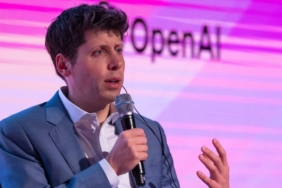On Wednesday, Baidu announced the launch of its artificial intelligence (AI) agent, Xinxiang, for Android devices. The Chinese technology company is promoting this new mobile-centric tool as a significant enhancement over traditional AI-powered chatbots, particularly in terms of information retrieval and analysis. Currently, the app is accessible to Android users in China, but it remains uncertain whether Baidu plans to expand its availability to other countries. An iOS version of the agent is reportedly undergoing review and may be released soon.
Xinxiang AI Agent Debuts on Android
According to a report by Reuters, Baidu’s Xinxiang is now available for download on Android devices within China. Due to the unavailability of the Google Play Store in the region, users can acquire the app through various alternative marketplaces, including Tencent Myapp, Huawei AppGallery, and Baidu Mobile Assistant. The app is being offered as a free download, though details regarding any potential in-app purchases or subscription options have not been disclosed.
The Xinxiang AI agent is designed to carry out tasks such as information analysis and travel planning, although comprehensive details about all its capabilities are not yet revealed. It is important to note that these functions do not typically align with the standard definition of agentic tasks. AI agents generally refer to systems capable of performing actions autonomously by interacting with other software or hardware.
There is speculation that Xinxiang may possess the capacity to autonomously access user files and internal data, enabling it to provide personalized and detailed responses. Baidu asserts that this AI agent could prove to be more effective than conventional AI chatbots in assisting users.
While the Android application is currently live, an iOS version is pending approval from the App Store. Following the necessary clearance from Apple, Baidu is poised to roll out Xinxiang for iOS users.
This launch follows Baidu’s introduction of its advanced Ernie 4.5 AI model and the reasoning-oriented Ernie X1 model just a month prior. The Ernie 4.5 model is a sophisticated multimodal large language model (LLM) capable of processing text, images, audio, and video, and has reportedly seen improvements in contextual understanding. Conversely, the Ernie X1 model includes functionalities that support tool usage.






